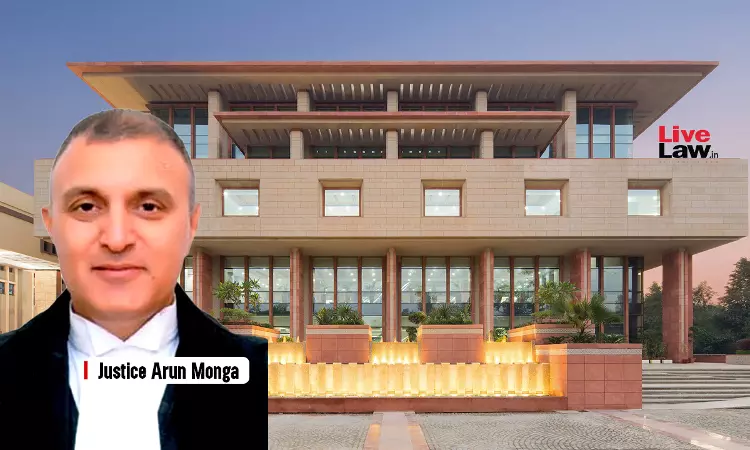- Home
- /
- High Courts
- /
- Delhi High Court
- /
- No Law Providing For Rights Of...
No Law Providing For Rights Of Viable Foetus If Born Alive, Lawmakers Must Address Issue: Delhi High Court
Nupur Thapliyal
12 Sept 2025 8:16 PM IST
The law must clearly delineate the balance between maternal autonomy and foetal rights at the stage of viability, the Delhi High Court observed on Friday.Justice Arun Monga observed that with the increasing number of cases seeking termination of pregnancy beyond the statutory limit, the question of foetal viability has assumed considerable importance in abortion jurisprudence.“The law...
The law must clearly delineate the balance between maternal autonomy and foetal rights at the stage of viability, the Delhi High Court observed on Friday.
Justice Arun Monga observed that with the increasing number of cases seeking termination of pregnancy beyond the statutory limit, the question of foetal viability has assumed considerable importance in abortion jurisprudence.
“The law must clearly delineate the balance between maternal autonomy and foetal rights at the stage of viability. No doubt, until such clarity is provided, courts will continue to tread this delicate path; but the ultimate responsibility to settle the matter rests with the law-making authority. It is time that the lawmakers of the country address this question in no uncertain terms,” the Court said.
It added that the State cannot compel a woman to undergo physical or mental trauma solely for the preservation of unborn life, adding that any such compulsion would, in effect, render her fundamental rights nugatory and subordinate to rigid biological benchmarks.
“In matters of such type, as the one in hand, this Court has consistently relied upon the recommendations of duly constituted Medical Boards in such matters, more so when the pregnancy has crossed the twenty-four-week mark. The role of these expert bodies in assessing the risks to the woman‟s life and health, and in determining the severity of foetal abnormalities, whether fatal or otherwise, cannot be overstated. Their opinions have provided the necessary medical foundation for judicial discretion, ensuring that the decision-making process is informed by expertise rather than constrained by statutory silence,” the Court said.
The judge further observed that where the life or health of the woman is endangered, her rights are paramount.
The Court emphasised that where the foetus suffers from grave or life-incompatible abnormalities, courts have permitted termination even up to twenty- eight or thirty-two weeks. It added that where the foetus is viable and healthy, and termination is sought on non-medical grounds, courts have declined relief, being mindful of the rights of a foetus capable of independent survival.
“It is, however, at this juncture that a larger question arises viz. What is the position in law as regards the rights of a viable foetus which, if delivered, may be born alive? This issue warrants attention. While constitutional courts have, in the absence of legislative clarity, sought to balance competing interests through case-specific adjudication. However, the absence of a clear statutory framework leaves the matter unsettled,” the Court said.
Justice Monga made the observations while allowing a 15 year old minor girl to undergo medical termination of pregnancy of 27 weeks, which was a result of sexual assault committed upon her.
The Court said that that the mental and physical well-being of the victim, who already endured cruelty at the hands of the perpetrators, must outweigh the mere probability of the foetus being born alive, which the medical experts themselves had noted as uncertain.
“Considering the age of the petitioner and the mental and physical trauma inflicted upon her by the heinous act of sexual assault, this Court is of the opinion that continuation of the pregnancy would permanently scar her psyche and cause grave and irreparable harm to her physical and mental health,” the Court said.
It clarified that during the procedure, if the attending doctors form the opinion that there is a serious risk to the life of the minor girl, they shall have full discretion to withhold or cancel the termination procedure.
The Court also directed the hospital to preserve the foetus for the purposes of DNA testing, as it may be required in connection with the pending criminal proceedings.
It said that if the child is born alive, the Superintendent of the Hospital will ensure that all possible and feasible medical assistance is extended to the child, and the Child Welfare Committee concerned shall take necessary steps in accordance with law. The cost of the procedure, if any, is directed to be borne by the State, it added.
Title: XX v. STATE GOVT. OF NCT OF DELHI & ANR
Citation: 2025 LiveLaw (Del) 1103



